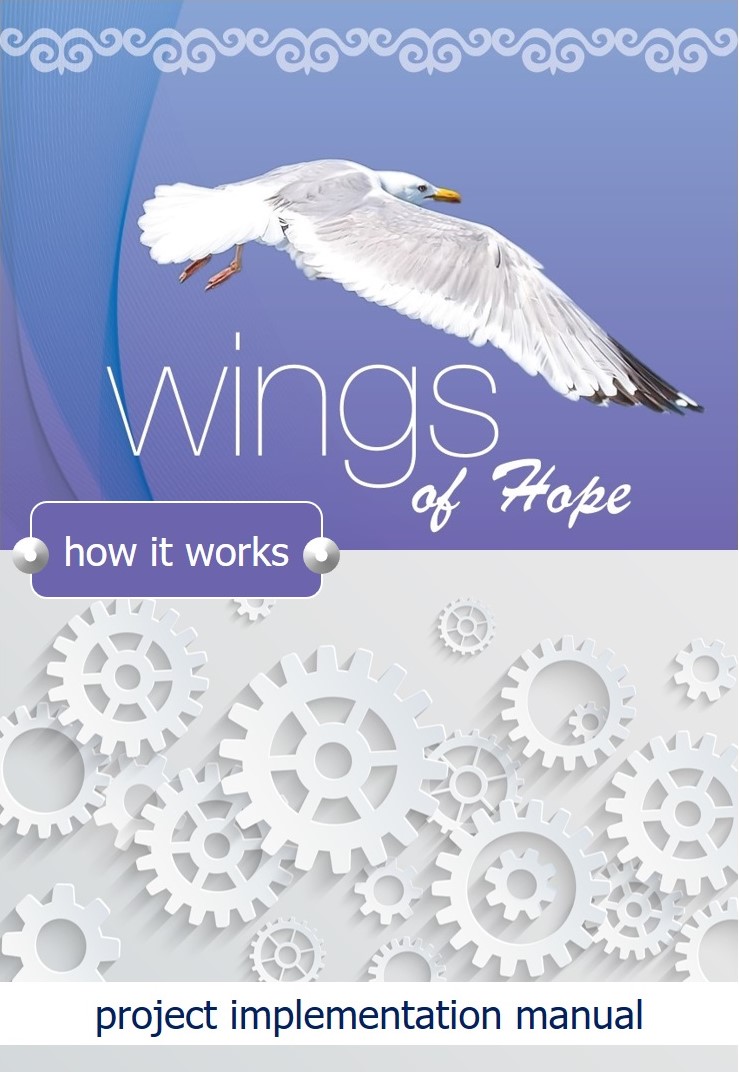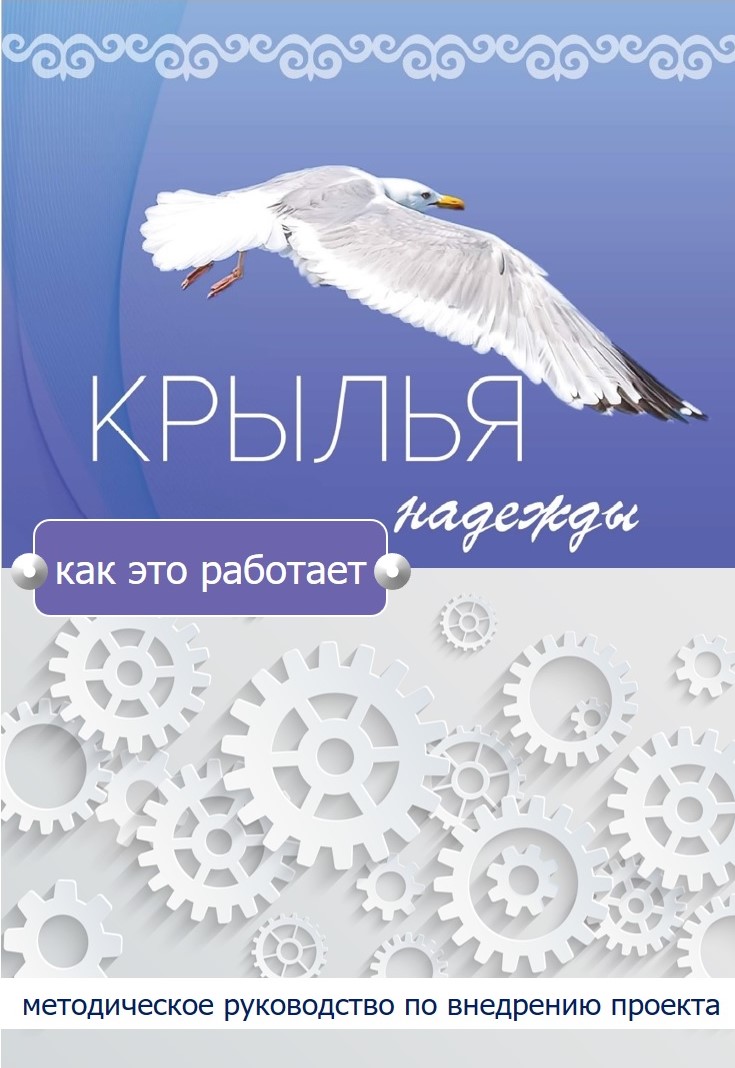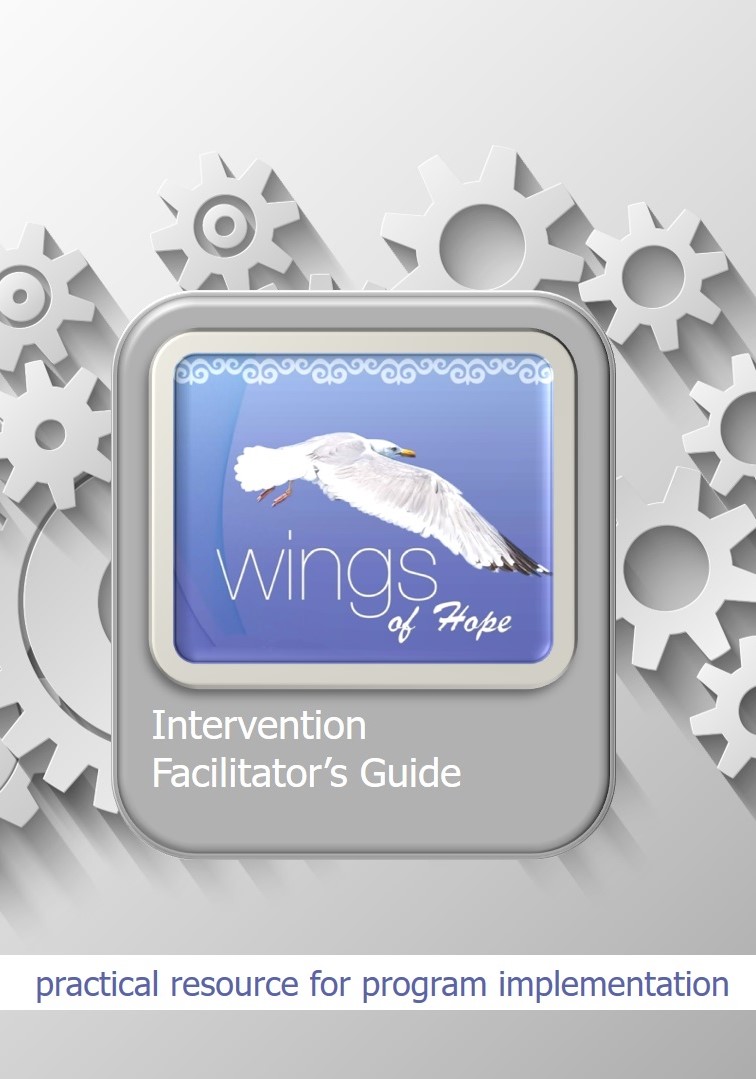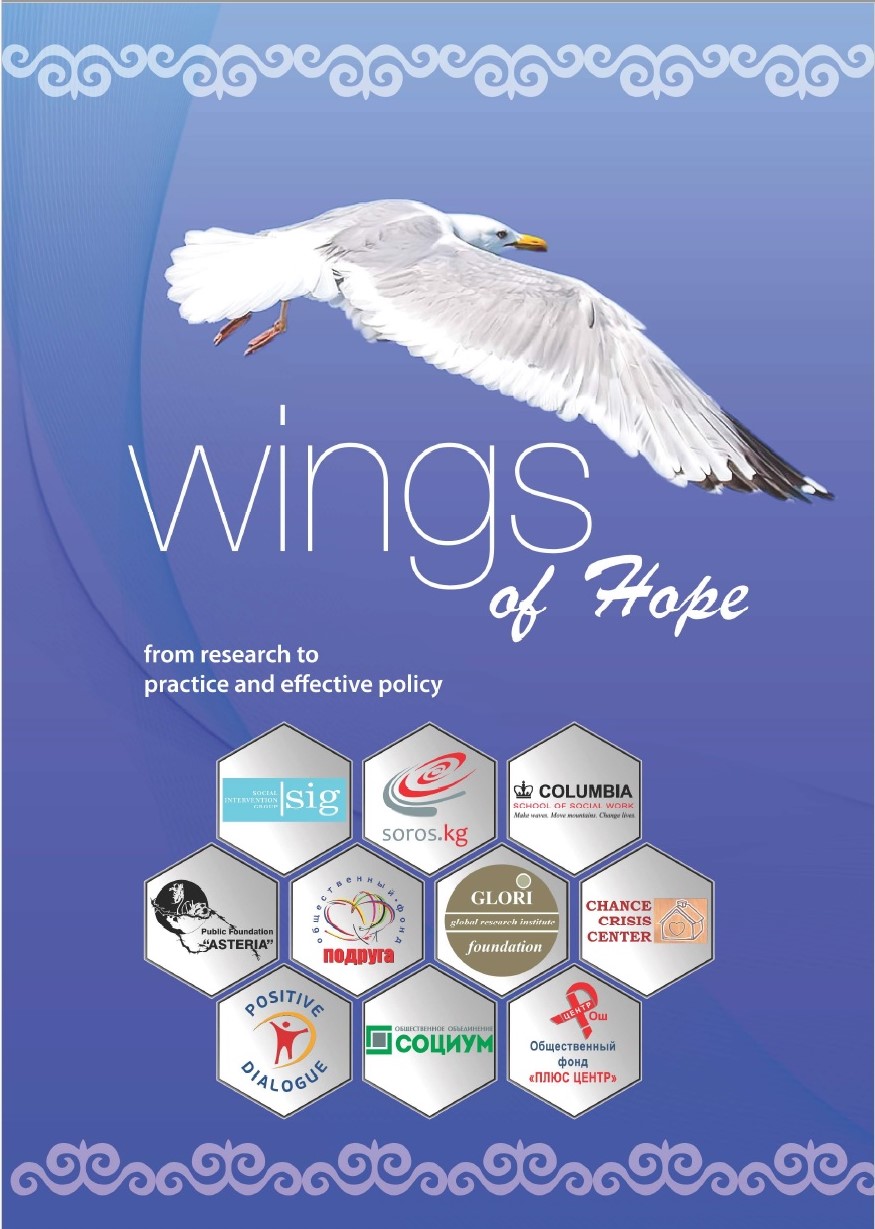The Project Implementation Manual is developed for the WINGS of Hope project based on a Gender-based Violence (GBV) Screening, Brief Intervention and Referral to Treatment (SBIRT) model designed for GBV prevention in women who use drugs (WWUD) and women engaged in sex trading.
Global Research Institute (GLORI Foundation) implemented the project in Kyrgyzstan from 2013 to 2016, with 213 women who use drugs and women engaged in sex trading, with funding support from Open Society Foundations and Soros Foundation Kyrgyzstan. This project was conducted in collaboration with non-governmental organizations Asteria, Sotsium, and Crisis Centre “Chance” in the town of Bishkek, and Podruga, Positive Dialogue and Plus Center in the town of Osh, with investigative and adaptation guidance from Dr. Louisa Gilbert, Dr. Timothy Hunt and Dr. Tina Jiwatram-Negron of the Columbia University Social Intervention Group (SIG).
Two hundred and thirteen women completed the computer-based assessment survey and attended two intervention sessions that were managed by trained staff at partner NGOs. All participants were provided with individual sessions that included psychoeducation/raising awareness of different types of IPV and GBV, screening for different types of violence, safety planning, enhancing social support to address violence, goals setting and building motivation to address GBV and HIV, identifying GBV-related services with linkage and referral to the services, and overdose prevention components. The training was followed-up by the voluntary rapid HIV testing.
The high rates of participation, attendance, and retention, as well as significant reductions in GBV victimization suggest the feasibility and promising effects of this WINGS SBIRT-based intervention and encouraged us to design the implementation manual as an effort to share our lessons learned from implementing WINGS to help those engaged in redressing and rolling back the epidemic of GBV among women who use drugs and female sex workers.
This implementation manual builds on implementation experience from clinical trials of WINGS in the U.S., Kyrgyzstan, and more recently in India, which have demonstrated effectiveness of the model in identifying and addressing gender-based and intimate partner violence. It considers the key concepts presented in the WINGS Implementation Manual developed by investigative team at Columbia University Social Intervention Group, and highlights the essentials for successful replication of the project in agencies working with women who use drugs and women, engaged in sex trading, who remain the most vulnerable to violence. It spells out the procedures and provides detailed guidance for the WINGS of Hope project implementers for the achievement of its objectives.
Although the manual focuses primarily on Kyrgyz-based experience to illustrate key concepts and issues, many of the concepts and tools described apply to projects for a diverse base. The manual has been prepared and will be updated by GLORI Foundation, and will be distributed to the implementing partners and to the donors providing financing to the project. The manual should be known and followed by managers and those with implementation responsibilities. The web-based Resource Center has lots of resources that help to gain in-depth knowledge about effective project implementation.
The manual is a living document assumed to be revised and updated as necessary in response to lessons learned and to incorporate the evolving needs of the project and any changes in procedures based on the experiences of the project implementation. Updates to the manual made by the GLORI Foundation, will be reviewed in agreement with the donors, implementing partners, and consultants. The GLORI Foundation will assign a new version number to each amended version of the manual, and disseminate the new version of the manual to all implementing partners, donors and consultants, also ensuring that the new version of the manual is available on this website.
In case of specific problems related to particular operations, the GLORI Foundation should be contacted for advice.
This manual focuses specifically on the project implementation phase for field-based managers at the agencies working with women who use drugs and women engaged in providing sex services. It has been arranged in the Project Lifecycle and divided into nine sections and addresses the key concepts of Project Initiation, Implementing Partner(s) Selection, Coalition Building, Project Planning & Protocol Development, Implementers’ and Staff Training, Intervention and Assessment Survey Adaptation, Project Implementation, Monitoring, Evaluation & Quality Improvement, Project Reporting, Sharing Experience & Disseminating Findings. It also includes Appendices, which hold supplementary information.
The WINGS of Hope Project Implementation Manual, in English, can be downloaded through this link:
The Russian version of the same Facilitator’s Guide can be saved from here:
The WINGS Implementation Manual that was developed at Columbia University Social Intervention Group (SIG), in English, can be downloaded through this link:
As a supplemental resource to this Project Implementation Manual, we also developed the WINGS of Hope Facilitator’s Guide for community-based NGOs who would prefer to focus on selected project activities rather than on the whole scope presented in the Project Lifecycle. The Facilitator’s Guide includes scenarios of the intervention sessions and methodological guidelines, and the NGOs’ staff could use the Guide for managing intervention sessions with their beneficiaries.
For example, if a particular agency has been working with WWUD or FSW communities, and women who use drugs or female sex workers visit their offices, social hostels, Trust Points or drop-in centers as a part of their funded projects, then the intervention sessions can be integrated as a part of the services that the agency provides. The coordinators should look through the Project Implementation Manual developed by GLORI Foundation, and decide which procedures and activities they will use. It could be the whole scope described in the Project Lifecycle, or just selected parts of it, like Adaptation and Monitoring, Evaluation & Quality Improvement procedures.
Once it is decided — with consideration of the beneficiaries’ well-being, the agency capacity and the team’s commitment, of course — then the WINGS of Hope Facilitator’s Guide should be followed for managing intervention sessions. As usually, the GLORI Foundation should be contacted for advice in case of specific problems related to particular intervention procedures.





















 Please visit the page where the WINGS of Hope Intervention Facilitator’s Guide can be downloaded >>>
Please visit the page where the WINGS of Hope Intervention Facilitator’s Guide can be downloaded >>>  The WINGS of Hope Consolidated Report with 3-year findings can be reached through this link >>>
The WINGS of Hope Consolidated Report with 3-year findings can be reached through this link >>>